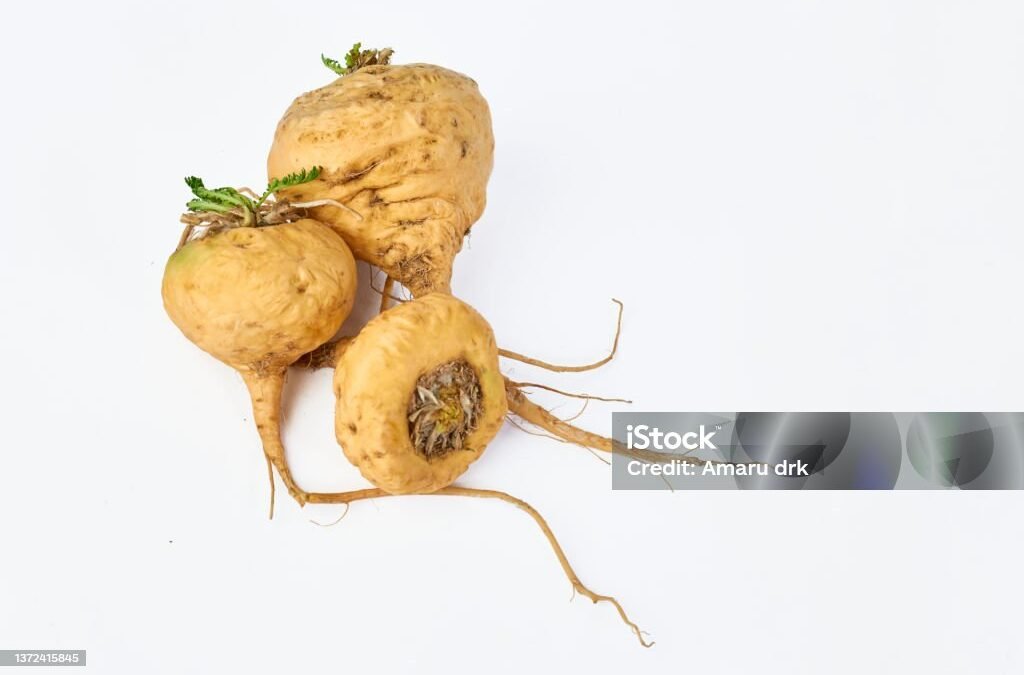Maca is a Peruvian plant that can produce a variety of health benefits, such as increasing libido, increasing fertility, increasing energy, and improving mood. It can help regulate menopause and blood pressure.
Maca grows in the Andes Mountains. It’s a cruciferous vegetable, meaning it’s related to broccoli, cabbage, and cauliflower.
Maca is a common ingredient in Peruvian cooking that gives food an earthy flavor. Maca root plant can be ground into a powder and added to meals or smoothies.
Apart from its culinary uses, maca may also have several health benefits. This article will discuss 10 potential health benefits of maca root.
Continue reading to know the health benefits of maca root
Increasing libido
Maca root’s most well-known benefit is its libido-enhancing potential. There is some scientific evidence to support this claim
For example, an older study from 2002 from a trusted source found that men who took 1.5 or 3 grams (g) of maca per day had increased libido compared to those who received a placebo.A 2010 review of trusted sources of research on maca and sexual performance found some evidence that maca may improve libido, but the authors cautioned that more research is needed.
A 2015 study Trusted Source found that maca root may help reduce sexual dysfunction in postmenopausal women who were taking antidepressants.
Reducing erectile dysfunction
maca root experienced a more significant increase in sexual well-being than those taking a placebo. Maca root may also be beneficial for people with erectile dysfunction (ED). A small study in 2009 looked at the effects of consuming 2.4 grams of maca root per day for 12 weeks on participants’ perceptions of their general and sexual well-being.
Increase strength and endurance
Some athletes and bodybuilders use maca root as a supplement to increase strength and performance. There is some evidence to support this.
A pilot study in 2009 found that using maca extract for 14 days improved the performance of male cyclists in a 40-kilometer time trial. However, the results were not significantly different from the improvement seen in those taking placebo.
However, the same study found that maca extract improved libido in participants. However, the sample size of this study was very small, so more research is needed to confirm the results.
Increase fertility
Another widespread use of maca root is to increase fertility, especially in men.
A 2016 review of trusted sources found some evidence that maca root can increase sperm quality in both fertile and infertile men. However, more research is needed.
Improves mood
Maca contains flavonoids, which are thought to improve mood and reduce anxiety. A study in 14 postmenopausal women found that maca can reduce feelings of euphoria and depression.
Also, a 2015 study found the effects of depression in the postmenopausal us may be lessened.
Lowering blood pressure
It is possible that maca root may also help improve blood pressure. The same 2015 study also found that 3.3 grams of maca per day for 12 weeks lowered blood pressure in Chinese postmenopausal women.
Minimize sun damage
An older study in an animal model found that maca may help protect the skin from UV rays. Another animal study in 2011 found that maca leaf extract may help prevent sunburn cell formation.
Fight against free radicals
Maca root also promotes the body’s natural antioxidants, such as glutathione and superoxide dismutase.
Antioxidants help fight free radicals, which can damage body cells. Some people believe that antioxidants can help prevent certain health conditions, including heart disease and cancer.
Alleviation of menopause symptoms
Some proponents of maca root believe it can help balance the hormone estrogen. During perimenopause, the stage before a woman’s menopause, estrogen levels fluctuate and cause a variety of symptoms.
A study from trusted sources found that postmenopausal women who took two tablets daily containing maca experienced fewer symptoms, such as hot flashes and night sweats.
Improving learning and memory
There is some evidence that maca can improve learning and memory. For example, a 2011 study found that maca can improve memory in rats.
A 2014 review of the literature suggested that maca may be beneficial for learning and memory function. Researchers suggest it may be helpful in treating conditions that affect these processes, such as Alzheimer’s disease.
However, research is currently only available on animal models, so it’s unclear whether maca will have the same benefits in humans.
Risks
Maca is not currently associated with health risks in most people and is unlikely to cause any side effects in moderate doses.
However, due to its effects on hormones, people with thyroid problems should avoid eating maca. It is also best to avoid taking maca during treatment that alters hormone levels, such as breast cancer treatment.
Takeaway
Maca has a range of potential health benefits, especially for sexual health. However, the evidence behind these health benefits is weak, as many studies have used small sample sizes or animal models.
Researchers need to conduct larger studies in humans to determine whether maca is effective. Although there are some health risks associated with consuming maca, most people can consume maca without experiencing any adverse side effects.
If a person is interested in trying maca root, they can find supplements at some natural food stores or online.
Although allicin supplements are safe for most people, you should consult your doctor before using them. They may interact with certain medications and should be avoided by people with certain preexisting conditions.


Recent Comments